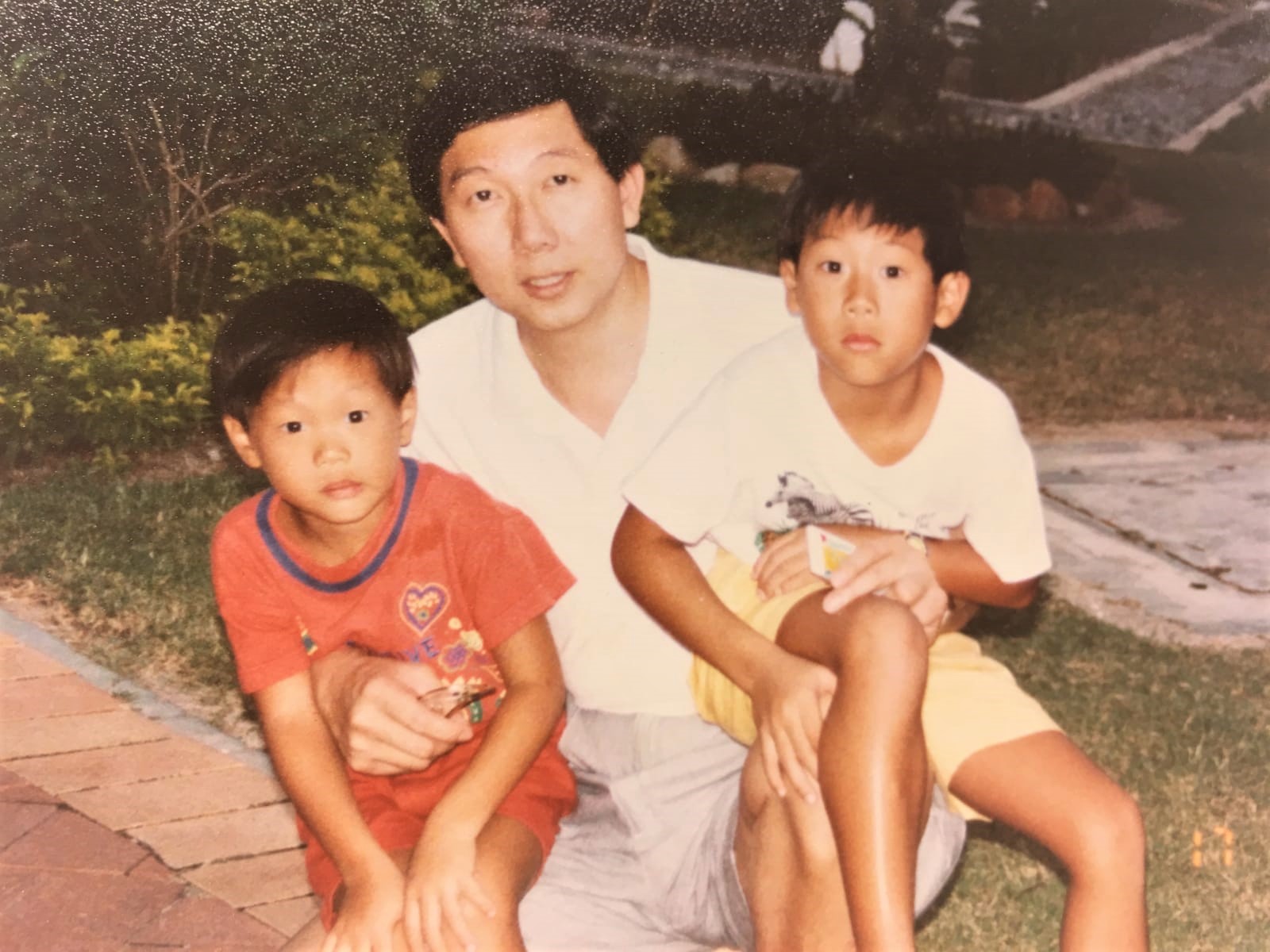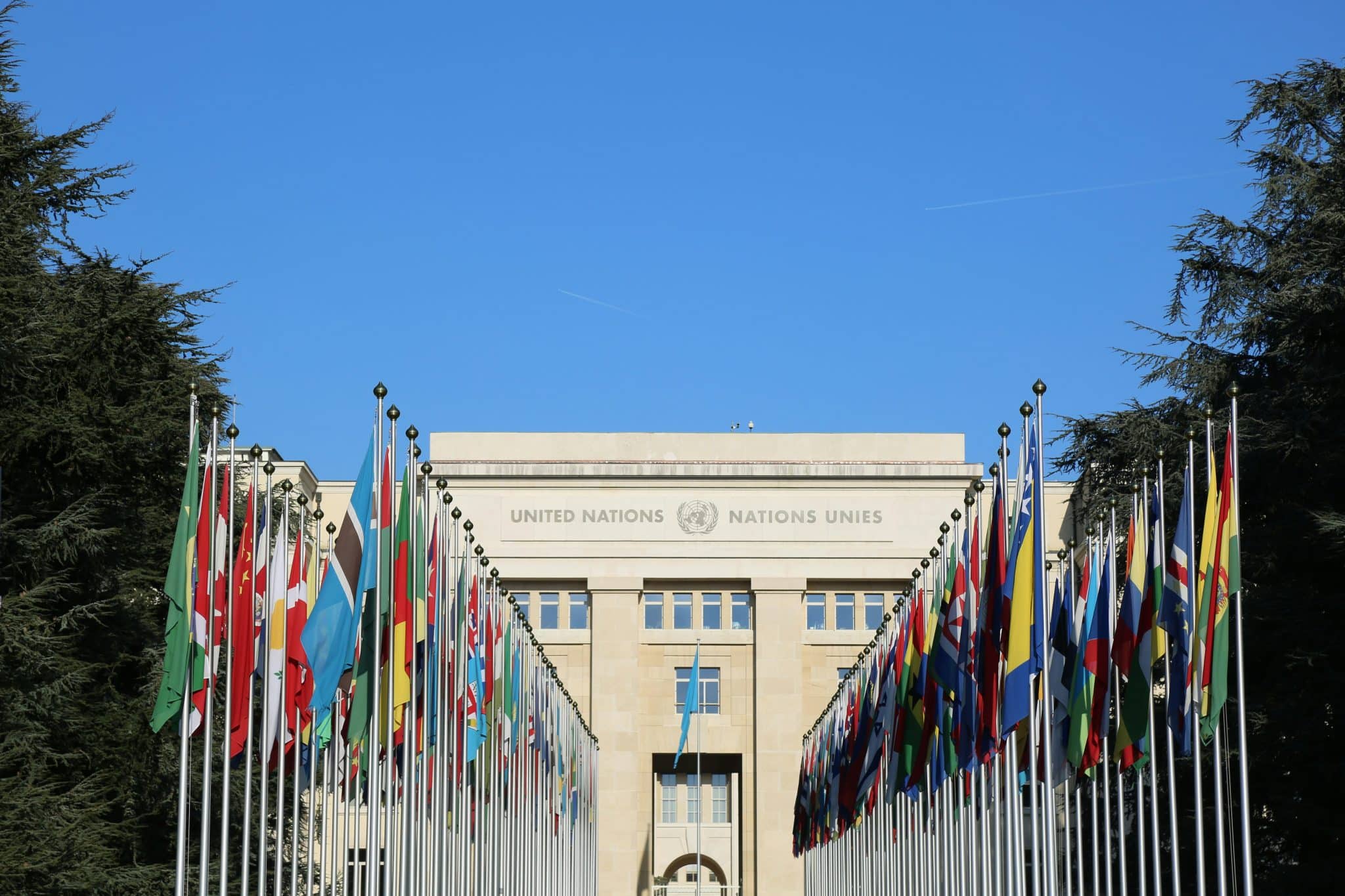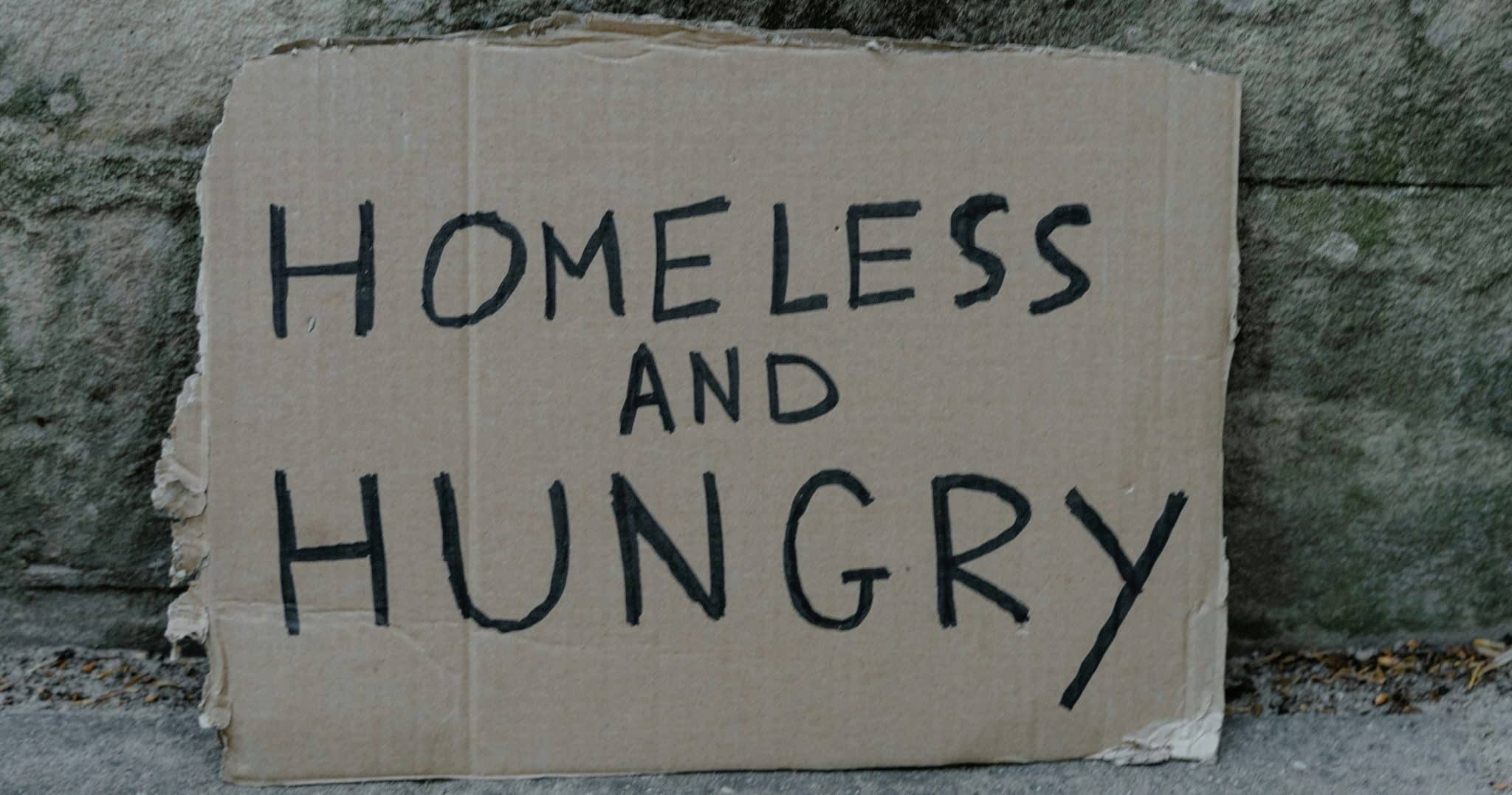How to be a father to the fatherless
This Father's Day, Salt&Light honours all fathers past and present.
by Christine Leow // June 17, 2021, 5:32 pm

Children who lose their fathers often go through intense grief that may include anger, sadness and even behavioural issues, says grief counsellor Joan Swee. Giving them space to experience and express their grief is helpful to their healing. Photo by Steve Shreve on Unsplash.
Father’s Day may be a day of celebration for many families. But for those who have lost their fathers, it can be a particularly sorrowful time, a reminder of what they no longer have.
When Joan Swee’s husband, Henry Chia, passed away in 1994 from stomach cancer, their sons were only six and eight.

Joan Swee’s husband Henry Chia with their sons in a photo taken in 1993, just a year before he passed away from stomach cancer. Photo courtesy of Joan Swee.
Chia had been hospitalised for a month before his passing and the children had known daddy was not well.
“We told them that the cancer was like poison in the body and that the poison had spread everywhere.”
Still, the reality of losing their father was devastating. While their older son reacted with bitter anger, their younger boy grieved differently.
“He wouldn’t look at families with fathers playing with the kids because it was a tough sight for him.”
“In the shower, he would cry and say, ‘I miss daddy’.
“He wouldn’t look at families with fathers playing with the kids because it was a tough sight for him.
“I would look away as well to avoid feeling lousy about myself.”
For the young widow – Swee was just 35 then – having to cope with her own emotions as well as her children’s made the loss even harder to bear.
“Those who have lost their fathers will miss the hugs, the playtimes and the love of their daddies. They will feel insecure because they have no daddy protector.
“They may also lose their identity because all icons of family show father, mother, son, daughter. They may ask, ‘Are we a broken family now?’
“As the children grow older, there is no daddy to consult with when they are at a crossroad.”
Now a counsellor and grief recovery specialist at Whispering Hope Singapore, a consultancy which she also founded, Swee, 62, draws from both her personal experience and her professional training to offer some tips on journeying with those who have lost their fathers.
1. Give the bereaved permission to grieve
When Swee became a widow, well-meaning Christian friends sought to comfort her and her sons.
Grieving does not mean that a person does not have faith.
“People would tell us, ‘Move on. Have faith in God. Don’t worry. He is in a better place. We’ll see him in heaven.’
“During the initial months after his death, I felt like I was not supposed to cry. When I went to church, I felt I couldn’t show that I was sad because I was to have the joy of the Lord.”
Realise that grieving does not mean that a person does not have faith. The Bible makes provision for grief and mourning (Isaiah 61), said Swee.
Most psychology books say to expect between 12 and 24 months before the intense grief – “where you are sobbing every day” – begins to fade.
Swee added: “We can’t run away from the fact that the children will miss their dad. But can we make the journey easier for them?”
2. Help children process their grief
Right after their father died, Swee’s sons acted out.
“My older one was angry with God because many people had told him that God had healed his father of cancer the first time and would heal him again. He felt it was a cruel joke (when that did not happen).
“I bought my sons a punching bag to hang in the room. Before that, they punched the pillows.”
“I just hugged him and told him, ‘Mummy is with you.’
“Some people don’t understand when children act out. They blame the widow, ‘You see, your children don’t want to behave.’
“The children are just out of sorts. They can’t label their feelings. They don’t know what they are feeling. They just know it is horrible.”
Let the children express their grief, even in unconventional ways.
“I bought my sons a punching bag to hang in the room. Before that, they punched the pillows.”
There would be time later to teach them how to manage their emotions and “not to explode”, assured Swee.
3. It’s okay to talk about daddy
Do not be afraid to mention their daddy by name and talk about him.
Said Swee: “People think that, if they bring up my husband’s name, it will make me feel sadder. It makes me sadder when they don’t mention him. It is as if he no longer features in my life.
“You can say, ‘You must be missing him.’ It gives us permission to talk about him.”
On the 10th anniversary of her husband’s death, his brothers asked Swee if they could organise a death anniversary event.
Reluctant at first because she felt they had moved on and she did not want a “weepy, soppy ordeal”, Swee took the matter to God.
“I told Him my reluctance. But I said that I would listen and obey when He told me what He wanted.
“On that day, they got to hear first-hand what kind of a man their father was.”
“A couple of mornings later, I woke up with a downloaded theme: Living and Leaving a Legacy.
Swee even had the names of 10 men who had known her husband as friend, brother-in-Christ, colleague, boss, business associate and brother. She asked each to share a three-minute testimony of who her husband had been to them.
Altogether 100 people were invited to celebrate the life that Chia had lived.
“My sons were so young when their daddy died. On that day, they got to hear first-hand what kind of a man their father was, and how well he was respected and honoured.
“I kept the hardcopies of the testimonies in a file, and left it for my sons to read. I’ve seen them re-read the testimonies at different periods of their life.”
4. Rally round the family
Swee remembers with gratitude how her family and her husband’s family rallied round her and her sons, following the loss of her husband.
For nine months, they lived with one of her husband’s brothers and his family.
Until shortly before her husband passed away, the family had been living in Hong Kong due to her husband’s work. They had returned when her husband’s condition became terminal, but had not had the time to get a home of their own.
Thanks to their large extended family, her sons always had uncles around them to provide the father figure they needed.
The boys each had a set of godparents as well, who helped fill the gap.
“It was very healthy to have these other dads pour into their lives.”
“The godparents were wonderful. I really needed them. They were my husband’s and my circle of Sunday School friends.
“In the immediate months after the loss, we huddled at the home of my elder son’s godparents on weekends to give my brother- and sister-in-law and their three sons some space.”
These old church friends were the ones who went for family outings with Swee and her sons so that her children could interact with other families.
“We used to picnic in the park in Hong Kong. In Singapore, we would cycle at East Coast with these other families. It was very healthy to have these other dads pour into their lives.”
Swee suggested that cell members could take turns to “adopt solo parent families” and include them in family outings and even holidays.
“Remember death anniversaries, birthdays, Christmases, New Years, Chinese New Years, Father’s Days, especially in the first couple of years (of the father’s death). Those occasions are awful for solo parents and their children.”
Swee’s younger son, now 33, added: “Don’t make us feel different or extra special. Treat us like everyone else because everyone is broken or hurt one way or another.”
5. Offer practical help
Step in to help with school runs, groceries, tuition, even meals and housekeeping. Parenting is a job for two and when there is only one carrying the load, it can be a challenge.
“It gives the solo parent time for some self-care,” said Swee.
For her, it was help with finances and legal matters after her husband passed away that she needed most.
“I was intimidated by banks and government agencies.”
“Henry was the one who kept the finances. I wasn’t working those 10 years we were in Hong Kong.
“When he passed away, I found myself with no husband, no job and two sons to raise on my own.”
Her husband left no will. So, all the assets in his name were frozen. Her brothers-in-law had to extend cash to her so she could pay for her and her sons’ expenses.
“My husband had no inventory of his finances or insurance. It was like looking for a needle in a haystack managing the finances. I was intimidated by banks and government agencies.
“We had to appoint a lawyer to settle his estate. I was so fearful of the lawyers and bankers. Thankfully, one of our friends who knew about investments came to me to settle Henry’s investments. That was one needle found.”
If you have the expertise, offer to help list down all the things a widow needs to do to settle her husband’s affairs.
The Lord is described as “Father of the fatherless and protector of widows”. (Psalm 68.5) How might we be the same this Father’s Day?
Where bereaved families can find help
1. Whispering Hope Singapore
This consultancy is the only one in Singapore which specialises in the internationally recognised Grief Recovery Method. All their Grief Recovery Specialists have walked the journey of overcoming grief and bouncing back from life losses, and have been trained and certified by the Grief Recovery Institute.
2. Wicare Support Group
This is a support group for widows and their children. They walk alongside families through one of life’s most difficult experiences – bereavement – offering hope, healing and companionship.
RELATED STORIES
The gifts in the valley: How God shepherded a pastor’s soul after his wife died
Business down by up to 97%, yet these restaurant owners are still giving to the community
Well acquainted with grief, these women now provide a safe space for widows and the fatherless
We are an independent, non-profit organisation that relies on the generosity of our readers, such as yourself, to continue serving the kingdom. Every dollar donated goes directly back into our editorial coverage.
Would you consider partnering with us in our kingdom work by supporting us financially, either as a one-off donation, or a recurring pledge?
Support Salt&Light



